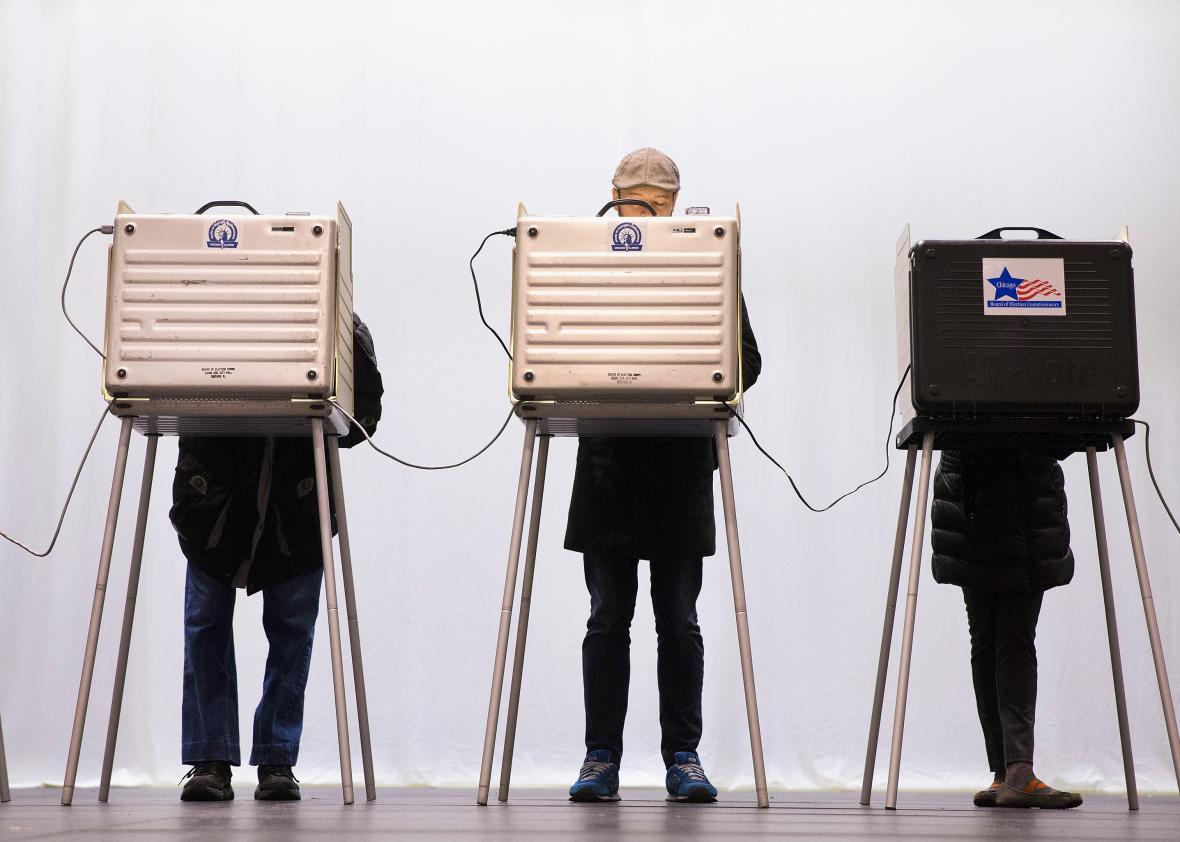Two steps forward, one step back. On Tuesday, the U.S. Court of Appeals for the 6th Circuit affirmed the legality of an Ohio law that eliminated the early voting week most favored by minority voters. The 2–1 decision bucks the federal judiciary’s recent shift toward robust protections for voting rights, and turns a blind eye to what any casual observer would surely recognize as a race-based voting restriction. But all in all, the ruling is really quite narrow, and it’s unlikely to have ramifications beyond its immediate restriction of the franchise in Ohio.
Tuesday’s decision centered around a Republican-led effort to abolish Ohio’s voting “Golden Week”—a six-day period during which individuals could register to vote and cast their ballots at the same time. Empirical evidence demonstrates that black voters were much more likely to take advantage of Golden Week than white voters. That makes sense: Black Ohioans are more likely to live in poverty and less likely to have time off from work than whites. For many black voters, these factors make two separate trips to vote—one to register, one to cast a ballot—very difficult financially. For this reason, a lower court had concluded that the elimination of Golden Week disproportionately burdened black citizens’ right to vote, in violation of the Equal Protection Clause and the Voting Rights Act.
The 6th Circuit reversed that ruling, declaring that it’s still “easy to vote in Ohio. Very easy, actually.” While the state eliminated Golden Week, it preserved 29 days of early voting—though none of those days allow same-day registration. The majority found that Ohio’s early voting system is “one of the more generous in the nation,” and that its contraction is “at most, minimally burdensome.” Sure, “some African-American voters may prefer” voting during Golden Week, the court scoffed, but that’s simply “a matter of choice.” Stripping black voters of their preferred voting method, the majority held, just doesn’t qualify as a “state-created obstacle” to voting.
That conclusion, supported by two George W. Bush appointees, was fiercely contested in a dissent by Judge Jane Branstetter Stranch, a Barack Obama appointee. Stranch objected to the majority’s framing of the case as an attempt to make federal courts “overseers and micromanagers” of “state election processes.” To the contrary, Stranch wrote: “I do not think that it is federal intrusion or micromanaging to evaluate election procedures to determine if discrimination lurks in an obvious rule or in a subtle detail.” Moreover, Stranch explained “those who seek to discriminate against a segment of the population do not trumpet their intentions—or do not do so publicly.” Instead, legislators may manipulate the levers of political power to disenfranchise minorities through seemingly neutral regulations—like, say, cutting the early voting week most favorite by black voters.
Stranch is correct to conclude that the Golden Week cut places a disproportionate (and thus illegal) burden on minorities’ right to vote. And the majority opinion is oddly snide, especially in its discussion of minority voting preferences. (“African Americans” are only “theoretically disadvantaged by reduction of the early voting period,” the court writes, when an analysis of census data and voting rates demonstrated that the disadvantage is very real.) But the ruling is strictly limited to this single facet of Ohio law and probably won’t be especially consequential or influential in any other context. For Ohio’s minority voters, this setback is undoubtedly painful. But it is only a small stumbling block for a voting rights movement that remains very much ascendant.
